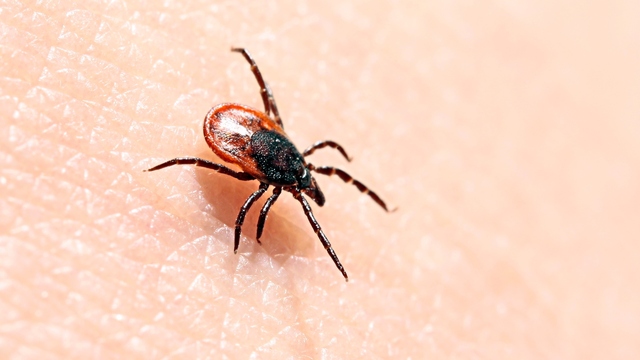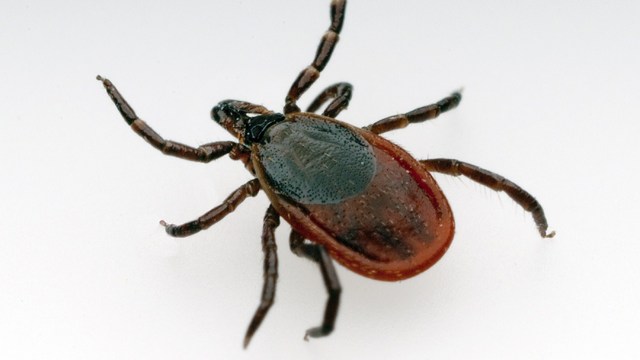 Design Pics/PhotoSpin
Design Pics/PhotoSpin
Only a few decades ago, the often contradictory data as to whether or not bug repellents were safe was sidestepped by some by just living with the itching from bug bites.
But since that time, serious health hazards like mosquito-borne West Nile disease and encephalitis, as well as tick-borne Lyme disease, Rocky Mountain Spotted Fever and ehrlichiosis, have changed the equation.
Putting up with bug bites is no longer the annoying but benign inconvenience it used to be. Consequently many people who used to avoid bug repellents like the plague have been venturing into the realm of chemical repellents.
According to the Environmental Working Group, Lyme disease numbers in 2013 were more than twice what they were 15 years earlier. West Nile virus infected more than 5,600 people in the United States annually, as of 2013, with almost 300 deaths.
The Environmental Working Group cautioned that repellents should not be used in every situation but in high-risk places and professions, they should be seriously considered.
EWG's research determined that there are four types of repellent chemicals that offer the best protection from tick and insect bites. EWG's top choices were picaridin, IR3535, DEET and Oil of Lemon Eucalyptus and its synthetic derivative p-Menthane-3, 8-diol (PMD).
- Picaridin has been available since 2005. It protects against tick and mosquito bites and is less likely to irritate skin and smell strong like DEET. It also doesn't evaporate as fast as DEET so it protects longer. EWG said that picaridin at 20 percent concentration can protect for 24 hours.
- IR3535 has been used in the United States since 1999. It may irritate eyes but no health problems have been observed. Merck 2013 recommends using 10-30 percent IR3535 for protection against ticks and insects.
- DEET is the most common mosquito and tick repellent. It should be noted that DEET has in rare cases caused nervous system damage. But consumers should not use a product that is 100 percent DEET. EWG said that 30 percent DEET is plenty strong enough. It offers protection with less toxicity.
- Oil of Lemon Eucalyptus (PMD) is a plant-based formulation, but it is processed into the synthetic derivative para-menthane-3,8-diol (PMD) so it is also registered with the EPA. The oil does not protect well against West Nile virus mosquitoes though, and isn't safe for children under three years of age. It may also contain the known allergen citronellol.
All of these repellents are registered with the EPA, which means that they have to reveal information on the products' toxicity and efficacy. Chemical repellents must be registered with EPA but citronella oil and other natural ingredients are not subject to this same scrutiny so data on them is limited.
EWG found that botanicals offer limited protection but they may be enough for people in conditions where bug-borne illness is not a serious problem. Keep in mind that "natural" does not guarantee that you won't end up with skin itch and irritation. Use them in a small trial amounts to find out if they irritate your skin.
EWG's online 2013 consumer guide offers 20 scenarios for adults, children and pregnant women.
Since no bug repellent will prevent all bug bites, the Environmental Working Group recommends taking other precautions as well.
Keep your skin covered with light-colored clothing. Bandanas, shirts with long sleeves and high collars, along with long pants tucked into your socks can make your skin less of a target.
A rotating fan can help blow bugs away from you. Such a fan can help reduce your attractiveness because it dissipates your exhaled carbon dioxide, and lowers body heat.
Mosquitoes breed in water so avoid areas with standing water, and don't have it in your yard. If you have a children's pool, empty it after use. When it rains, have you garbage cans turned upside down, and cover rain barrels to limit standing water.
Sources:
EWG's Guide to Bug Repellents. EWG.org. Retrieved July 21, 2014.
http://www.ewg.org/research/ewgs-guide-bug-repellents
EWG’s Guide To Better Bug Repellents. EWG.org. Retrieved July 21, 2014.
http://www.ewg.org/release/ewg-s-guide-better-bug-repellents
The Best, and Worst, Bug Repellents. RodaleNews.com. Retrieved July 21, 2014.
http://www.rodalenews.com/best-bug-repellents
EWG's Guide to Bug Repellents: Repellent Chemicals. EWG.org. Retrieved July 21, 2014.
http://www.ewg.org/research/ewgs-guide-bug-repellents/repellent-chemicals
EWG’s Advice for Avoiding Bug Bites. EWG.org. Retrieved July 21, 2014.
http://static.ewg.org/reports/2013/bug_repellents/2013_EWGs_Bug_Repellen...
Visit Jody's website at http://www.ncubator.ca
Reviewed July 22, 2014
by Michele Blackssberg RN





Add a Comment2 Comments
Erin told me. Thanks!
July 24, 2014 - 11:27amThis Comment
Jody, great article! Did you know that this was included in Google's alert for "women's health" yesterday? Congrats :)
July 23, 2014 - 9:47amThis Comment